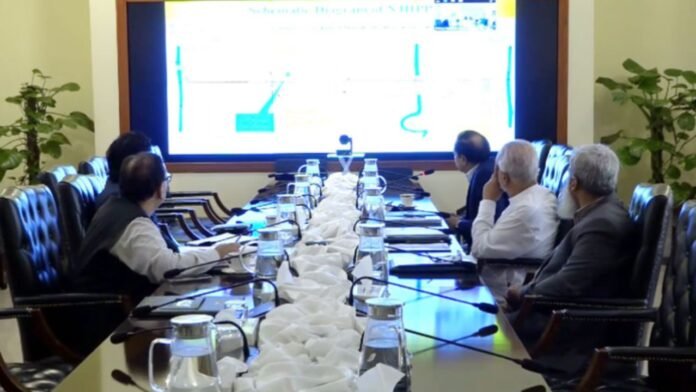A very considerable assembly was held under the leadership of PM Muhammad Shehbaz Sharif concerning the Neelum Jhelum Hydropower Project. This meeting followed recent technical problems that have raised concerns about its structural soundness and overall management.
During the meeting, the investigative committee presented an initial report on a recent malfunction. The report showed that the construction of the Neelum Jhelum Hydropower Project ignored significant geophysical and seismic factors. Thus, this has brought operational challenges and safety risks, calling for immediate measures to rectify them.
In their briefing to the PM, officials highlighted specific areas of concern. The headrace tunnel needed a proper concrete lining, which was a critical part of the project. Consequently, this poor lining has weakened its integrity and safety aspects. Moreover, they stated that this project failed to undergo timely third-party validation – a standard procedure that could have identified these issues before they escalated.
Prime Minister Shehbaz Sharif expressed his deep dissatisfaction with and concern about these findings. He directed the authorities to rapidly identify those responsible for such grave oversights and strictly deal with them, as the law requires. He stressed accountability and warned against any negligence in a project of such a magnitude.
Shehbaz Sharif, also the Prime Minister, said that experts in the project had already highlighted several design flaws. A significant oversight regarding the lack of proper concrete lining in the headrace tunnel triggers construction quality control flaws within this scheme. He noted that there was criminal indifference in this significant and crucial work.
Moreover, why didn’t they conduct a detailed geological survey for this project? Identifying risks early through a comprehensive geological survey ensures the safe structures of such projects, including hydropower plants’ dams like the Neelum Jhelum Hydropower Project. The absence of such surveys thus points out the planning gap or defectiveness between the inception and completion of this project.
The PM also criticized the absence of third-party validation. Third-party validation is an independent review of a project’s design, construction, and operational parameters. This omission was, therefore, called criminal negligence by the responsible authorities; during his speech, the Premier stressed the need for adherence to international standards in all major infrastructure projects.
The Prime Minister’s words indicate that he is generally worried about managing and overseeing megaprojects in Pakistan. He also resolved to ensure that all undertakings adhere to the highest safety levels, quality requirements, and accountability standards. To recall, as a component of the national grid system, the Neelum Jhelum Hydropower Project is of great importance for energy security and the state’s economic well-being.
The PM ended the meeting with a strong message: robustness and accountability. Strict compliance with safety and quality standards is the most important. The government will take necessary actions to address the shortcomings and avoid recurrence in future projects. This determination to be excellent and accountable is essential in retaining public confidence. And for national infrastructure projects’ long-term success and sustainability.
The Neelum Jhelum Hydropower Project is anticipated to boost Pakistan’s power demand upon completion significantly. However, these recent events have highlighted the significance of proper planning and strict oversight. And commitment to international norms in all stages of the project life cycle.


